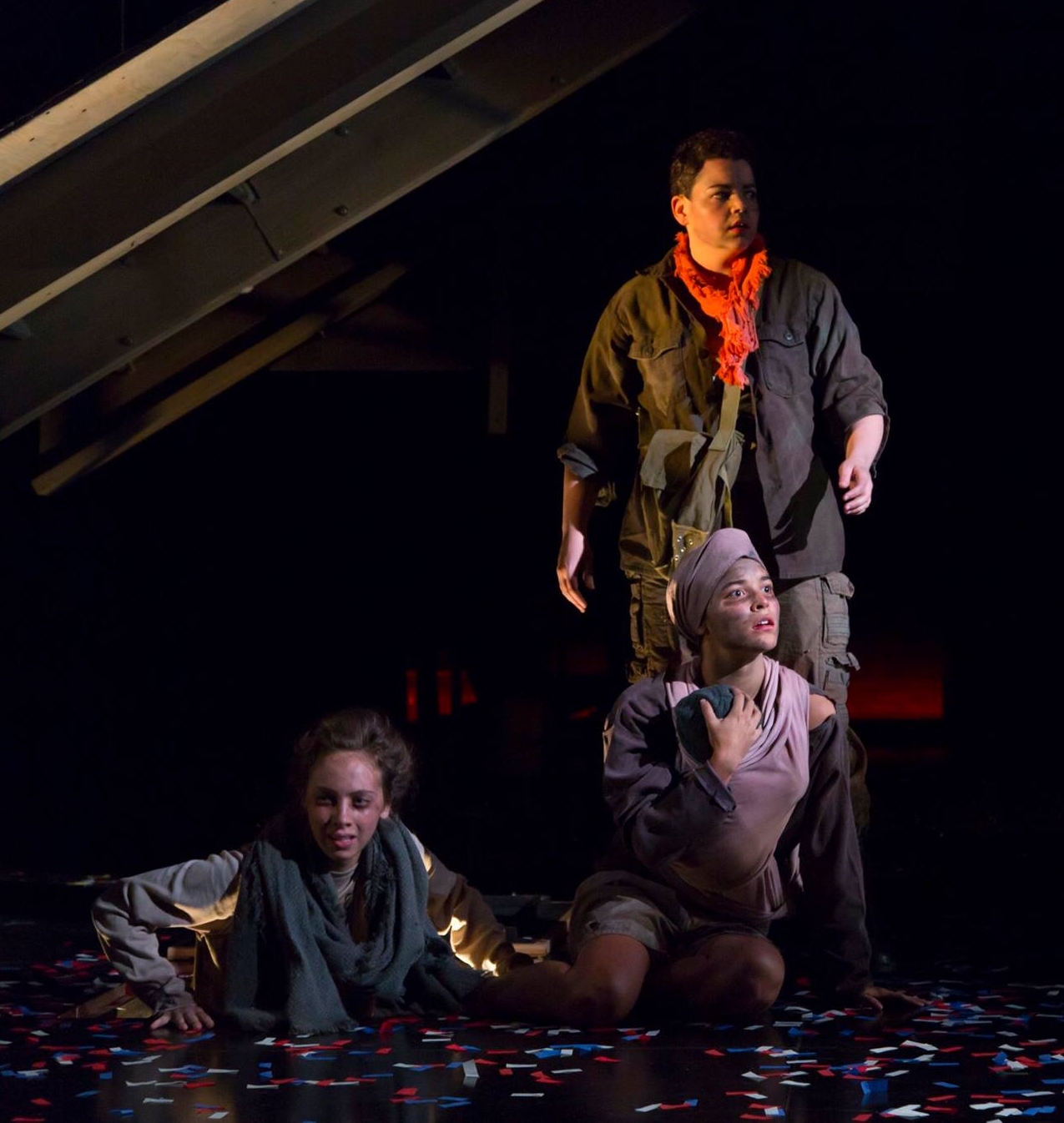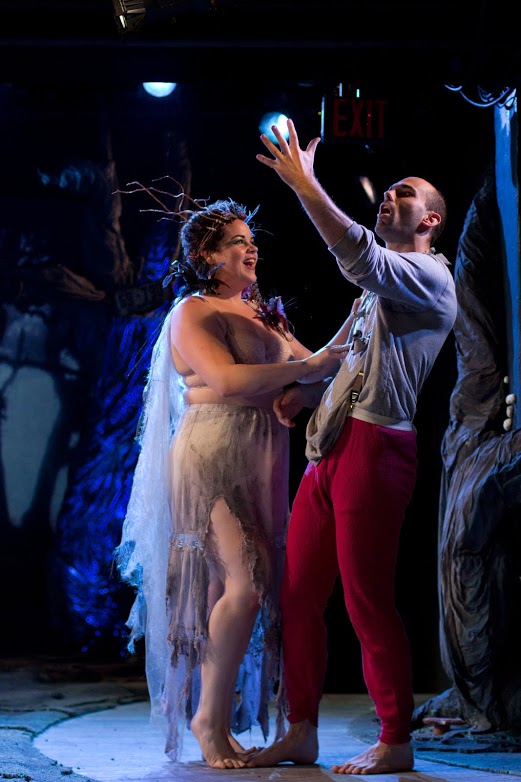Preview of Adam Geist, Yale Summer Cabaret
Last Friday, continuing its theme of the Seven Deadly Sins, the Yale Summer Cabaret hosted Envy: the Concert Experience, curated by sound designers/musicians Frederick Kennedy and Christopher Ross-Ewart. This Thursday, the next play of the season, Dea Loher’s Adam Geist, translated from the German by David Tushingham, directed by Co-Artistic Director Elizabeth Dinkova, opens for its two week run till July 30th, a U.S. premiere.
A one-night only event, Envy: the Concert Experience offered, in its first half, readings, recitals and performance pieces accompanied by music, and in its second half a wonderfully bracing jazz concert featuring Zach Brock on violin, Frederick Kennedy on drums and percussion, and Matt Wigton on electric bass. The event was the best non-theater production at the Cab I’ve seen, and leads one to hope that future proprietors of the Summer Cab, or even the term-time Cab, will find a means to provide similar events that are more like traditional cabaret.
Adam Geist, for director Dinkova, is “the second installment” of her “outsider trilogy,” which began last spring with a studio production of Othello at the Yale School of Drama. Dinkova, who has been in the U.S. for seven years but was born and educated in Bulgaria, is drawn to works that explore those who are “not anchored, who don’t belong” in one particular culture. Adam, the hero of the play, is “uprooted” early in his life and “latches onto whoever can anchor him in some way.” He has, Dinkova says, “behavioral and mental problems” and has limited options, as is often the case with the mentally ill in our society. The play “may be a tragedy” but also takes a tone of comical absurdity, deriving its “humor from the paradoxes of the human condition.”
Elizabeth Dinkova
Dinkova feels that Loher’s play, which she first read while considering plays for her thesis production next year, “combines all the sins” that have been showcased this summer. The chosen sin—or theme—is “wrath,” but Adam, while in some ways an angry young man, is also “naïve, confused, and growing toward clarity and maturation” with perhaps “more hope at the end.” In fact, Dinkova recognizes that she may be trying to emphasize a more redemptive reading than her lead actor, Julian Elijah Martinez, who plays Adam, concurs with.
Martinez, who worked with Dinkova on Othello—he played Michael Cassio—and on Boris Yeltsin, as Orestes, in last year’s Cab season, sees the play’s redemptive elements tempered by realist and exisentialist qualities. Martinez understands Dinkova’s reasons for “pushing for empathy” in the fact that Adam, about 16 when the play begins, is “a product of his society that culture has failed.” And Martinez sees the play as “the best and safest choice for this project” of showing “how society fails the disenfranchised,” but, for him, the play is primarily “a poetic, expressionist look at an individual doing horrific things.” He likens Adam Geist to a Greek tragedy, where “the experience of the negative” qualities of humanity “leads us to catharsis.”
Julian Elijah Martinez
For Martinez, the challenge of the role is in “pursuing an objective” in each scene, without getting stuck in a “trap of general emotion.” Adam is a rigorous role, moving between very reactive scenes with a changing and colorful cast of interlocutors—skinheads, American Indian “hobbyists,” mercenaries, and other subcultures—to monologues that reveal Adam’s “disjointed thoughts.” Martinez, who was a Co-Artistic Director for Cab 48, has shown himself to be a charismatic, mercurial actor in his time at the School of Drama and seems perfectly cast for such a varied role.
Coming after a two-week run of Miranda Ross Hall’s Antarctica! Which is to Say Nowhere, which Dinkova also directed, Adam Geist, offers “the treat of moving into a different genre.” Loher’s play, Dinkova feels, is “more open” and ambiguous than the absurdist social satire of Antarctica. Dinkova is grateful to her collaborators at the Summer Cab for their willingness to “take chances” with a production that is “too big” for the Cabaret. As with Antarctica!, there are many role changes and the tone is both “serious and absurd.”
The key emotional difference seems to be maintaining both an attachment to Adam, as a deeply conflicted character who commits acts both terrible and heroic, and a detachment from the criminality of a setting Dinkova calls “a brutal landscape.” Set in Austria, Adam Geist touches on themes of ethnic cleansing and ultra-right politics, and odd facts like Germans who try to promote themselves as “American Indians” in a kind of retrograde “noble savage” manner. In its director’s view, Adam Geist presents a sense of sin as not evil so much as the result of exploitation and oppression. The play, she says, should make its audience “interrogate its beliefs” and find “hard-won hope” in human possibility.
Es ist Zeit für Geist!
Adam Geist
By Dea Loher
Translated by David Tushingham
Directed by Elizabeth Dinkova
Yale Summer Cabaret
July 21-30, 2016












